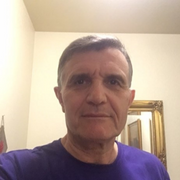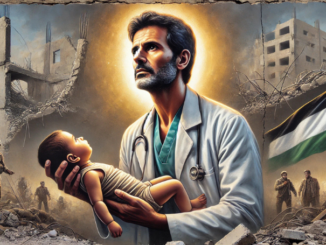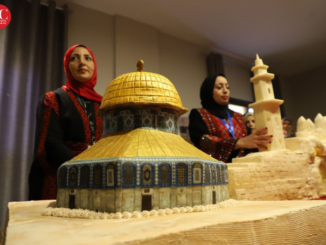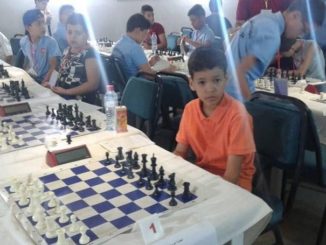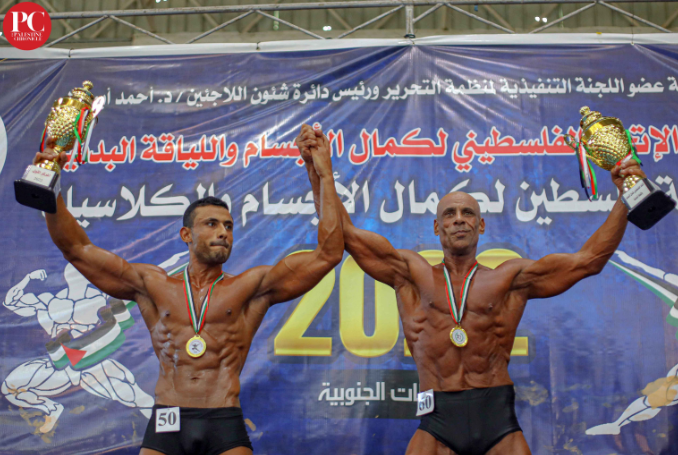
There have been many legends depicting Palestinian resistance to the Zionist colonial expansion and occupation throughout modern Palestinian history. Heroism in Palestine was a byproduct of body resistance and bravery. It was often the body’s endurance, steadfastness, and agility in confronting and evading the occupation forces that contributed to the Palestinian struggle. At the forefront of this struggle is the willingness of this body to die for its homeland.
Palestinian bodies fought heroically against their executioner, even after being reduced to bones and skin. Khalil Awawdeh, who remained 172 days on hunger strike, said:
“Oh free people of the world, this rickety body is left with nothing but bones and skin, it does not reflect weakness of the Palestinian people, rather it’s a mirror in the face of the real occupation.”
In the Palestinian resistance dictionary, we often hear the expression “trees die while standing,” especially when referring to martyrs who stood tall despite being shot.
Palestinian citizens’ health and bodies have clearly been adversely affected by the daily suffering they endure as a result of the occupation and its obstacles (along with other social and economic factors). However, Palestinians developed the ability to adapt to these harsh conditions. Using their bodies, they were able to overthrow their jailor and resist the occupation anywhere: at checkpoints, in prisons, and on the streets. They had demonstrated to the world that they are stronger than the occupation soldiers and their armor with the strength of their bodies, morale, and courage.
The Palestinian body served as a source of power in different cultural settings and contexts as a farmer, teacher, worker, refugee, mother, freedom fighter, and martyr. It was the focus of attention of writers, poets and artists. Palestinians, their bodies, and their resistance to the occupation have become symbols of freedom fighting around the world.
Caring for one’s body is a societal responsibility as well as a personal one. Palestinians must maintain a high level of physical fitness and health to continue to exist, survive, and struggle under these difficult and complex circumstances. Generally, it is believed that the stronger the body, the stronger the nation. Thus, underestimating the body’s power would be an egregious mistake.
Many intellectuals (including writers and poets) and national leaders ignore the enormous potential of sports, neglect their health and bodies by following an unorganized lifestyle. They overlook the importance of the body in enhancing the status of the mind and soul and in achieving optimal self-integration. Rather than promoting physical activity and sports, they undervalue them and view sports as a leisure activity or a waste of time. Moreover, some of them argue that sports are a distraction from national tasks aimed at ending the occupation.
In 1987, the National Unified Forces of the Intifada did not close social-athletic clubs in the West Bank and Sector Gaza. However, as a precautionary measure, many clubs closed after their members were arrested or stormed by the Israeli authorities. As a result of inactivity, many athletes developed sagging bodies and lost physical abilities. Inactivity was not limited to athletes but also to a large proportion of citizens.
Back in 1988, I wrote an article for Al-Bayader Al-Siyasi (A Jerusalem-based political magazine, founded in 1981) lamenting this inactivity and warning against its consequences. Intifada-related side effects including this phenomenon failed to be counteracted by intellectuals and national leaders. By exposing its dangers, advocating health issues, and promoting exercise among all mass populations, this could have been achieved. However, in the end, the first Intifada was a triumphant political and social revolution.
As a part of the Arab and international liberation movement, the Palestinian struggle is designated as a revolutionary action against the occupier. History shows that a number of liberation movements have promoted and incorporated sports and physical exercise as the main part of their ideological agenda in two directions: to prepare their fighters physically and militarily, and to raise the health level of their citizens.
Health is one of the most critical national responsibilities for all movements, whether they are national, cultural, labor, women, students, or others. Fighting inactivity and unorganized living is a national mission. It is enough to ignore this critical aspect. It’s time for everyone concerned about Palestine to respect, glorify, and care for this body – the pillar of existence and resistance.
